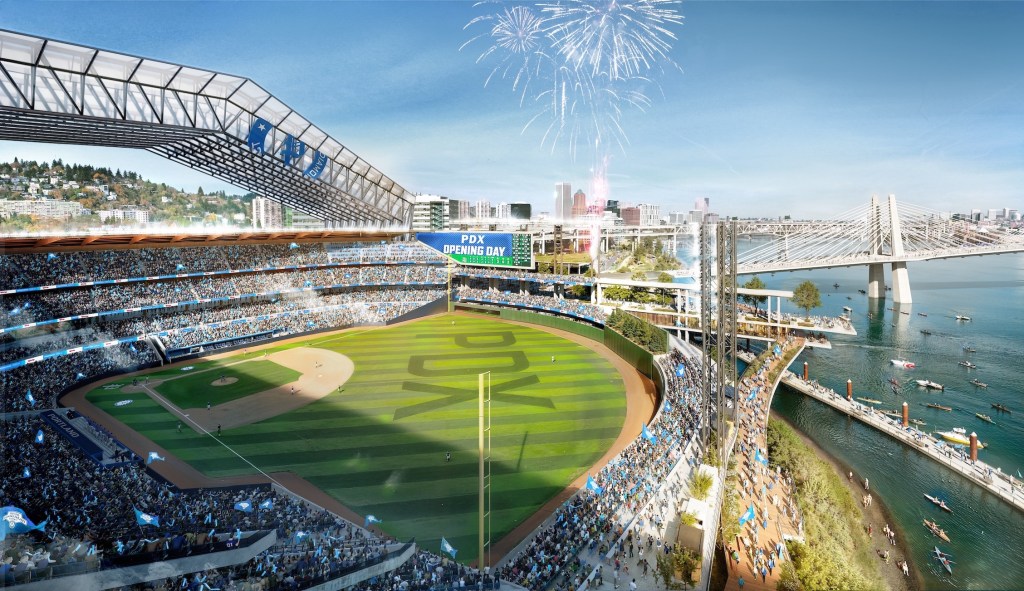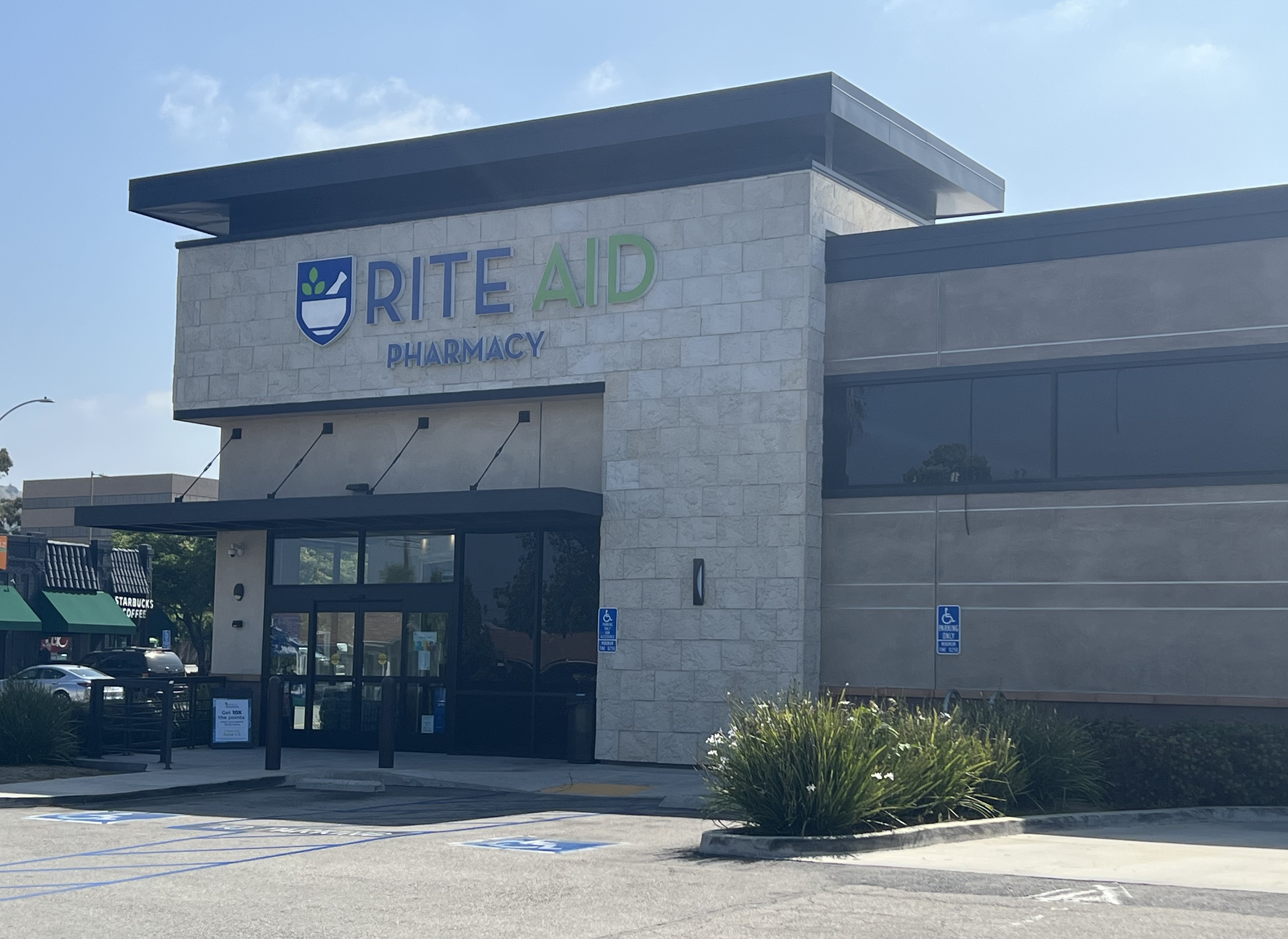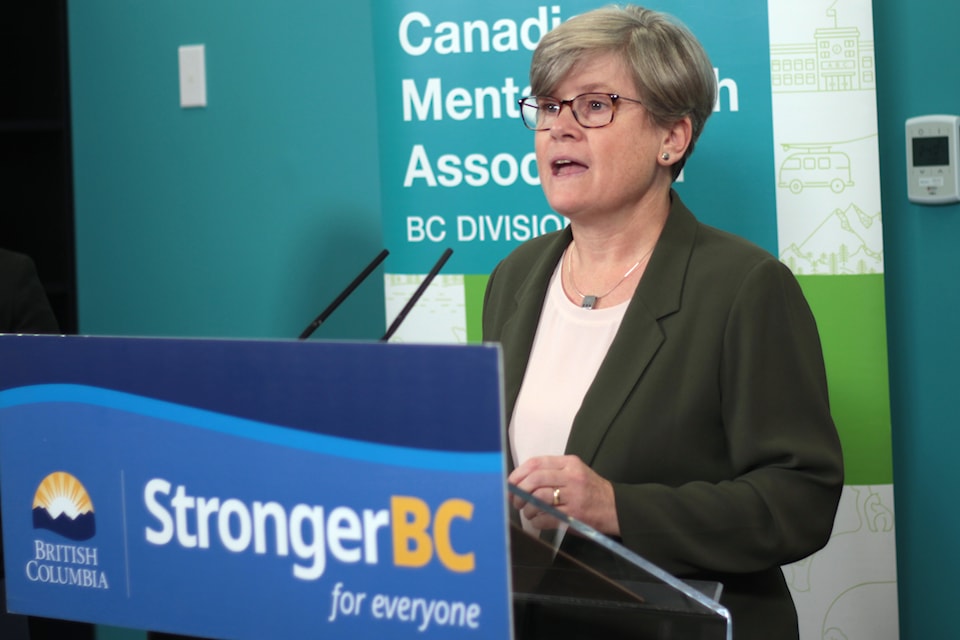Portland sport and art organizations join forces to boost downtown
Published 12:53 pm Wednesday, June 11, 2025

- A rendering of the potential MLB stadium in Portland proposed by the Portland Diamond Project in March 2025. (Courtesy photo/Portland Diamond Project)
Some of Portland largest professional athletic and cultural organizations are coming together to support each other and advocate for the local economy. Shared needs include improvements in the city-owned venues that they use and continued public safety improvements to encourage more people to continue attending their events.
“Sports and the arts are key to Portland’s livability and economic vitality, and we are joining together in a way that has never happened before,” said Isaac Thompson, president and CEO of the Oregon Symphony. “We care about the future of this city, and we are all lined up. We want to be part of the solution.”
Representatives of the newly formed Sport Art Coalition spoke at the Portland Metro Chamber’s monthly breakfast forum on June 11. Other panelists included: Portland Timbers CEO Heather Davis; Sport Oregon CEO Jim Etzel; Portland Trail Blazers President of Business Operations Dewayne Hankins; and Oregon Ballet Theatre Executive Director Shane Jewell. The discussion was moderated by Burgerville Executive Chair Joth Ricci.
The organizations, which include the Portland Art Museum, have banded together under the slogan, “We Play for Portland.” All of the panelists said their organizations — and those like them — are vital to the economic health of the region, especially the revival of downtown Portland, which suffered the economically following the Covid-19 pandemic shutdowns.
“We are here for our friends in the arts, and we know they will be here for us, too,” said Etzel. “The city has some big decisions to make about how to support the teams, performers and artists who make Portland special. We’re showing up for one another because what’s good for one of us is good for us all — and good for Portland as a whole.”
Although crowds are returning to their organization’s games and performances, the panelists said Portland, the Metro regional government and Oregon state government can and should do more to increase their recoveries and benefit the economy. Issues mentioned included the unique situation in which the venues they use are owned by the city of Portland but managed by Metro, the elected regional government. Questions about who is responsible for the improving the facilities surfaced during discussions over renovating the Keller Auditorium last year.
Additional funding also is needed for new venues, the panelists agreed, including the new city-owned Performing Arts Center proposed by Portland State University on its campus and the new Major League Baseball stadium envisioned in the South Waterfront district along the west bank of the Willamette River.
The results would be especially important for downtown, the panelists said, because their games and performances draw crowds that also frequent nearby restaurants and stay at local hotels and motels. Another venue needing improvement is the Moda Center, the home of the Portland Trail Blazers, that also hosts larger touring concerts, Hankins said. It has never hosted an NBA All Star Game, and would not be considered in its current condition. Upgrading the arena should be part of the renovation of the Rose Quarter being spearheaded by the Albina Vision Trust.
“We have the NBA franchise in the largest media market that has never had an NBA All Star Game,” Hankins said.
Many other public-private partnership opportunities exist, the panelists agreed. For example, the Timbers currently partner with TriMet to encourage fans to take transit to their games. TriMet accepts Timber tickets for transit fares on game days. Davis said the Portland Clean Energy Fund could be tapped for TriMet to accept tickets for all of the organizations’ events when they are held.
The forum was just one of the Chamber’s recent large membership events open to the press that presented new plans and strategies for revitalizing downtown. The week before, the Chamber’s 2025 annual meeting featured a presentation of “All In for Portland’s Central City,” the final set of recommendations proposed by the Portland Central City Task Force appointed by Oregon Gov. Tina Kotek in August 2023. Among other things, it calls for revitalizing downtown as a series of walkable neighborhoods with public gathering spaces supported by 25,000 new homes, half of which are affordable housing units.
Some panelists echoed comments about that proposal, including saying that years of focused commitment will be required for them succeed.
Founded in 1870, the Portland Metro Chamber is the oldest, largest, and most diverse business organization in Oregon and Southwest Washington. It has evolved over the years and was previously known as the Portland Trade Board (1870-1890), The Portland Chamber of Commerce (1890-1984) the Portland Metropolitan Chamber (1984-2001), and the Portland Business Alliance (2001-2023). Since 2017, it has helped prepare and release a series of reports on the economy of the city, region, and state.





